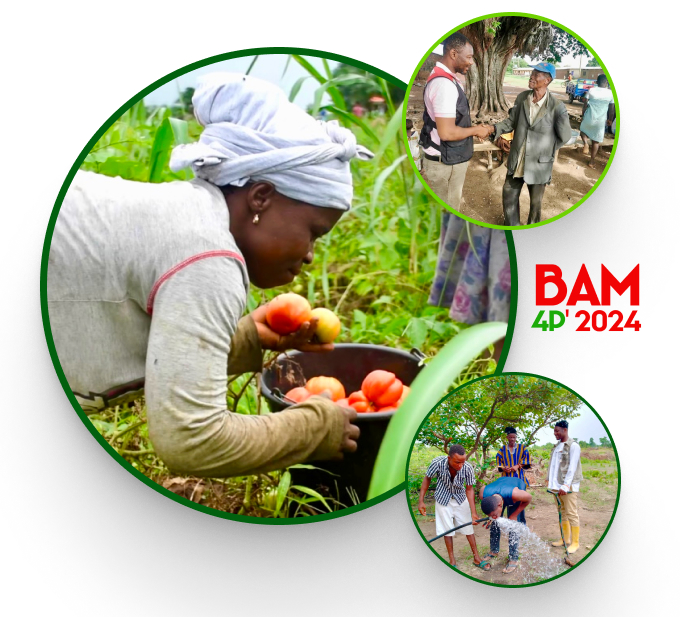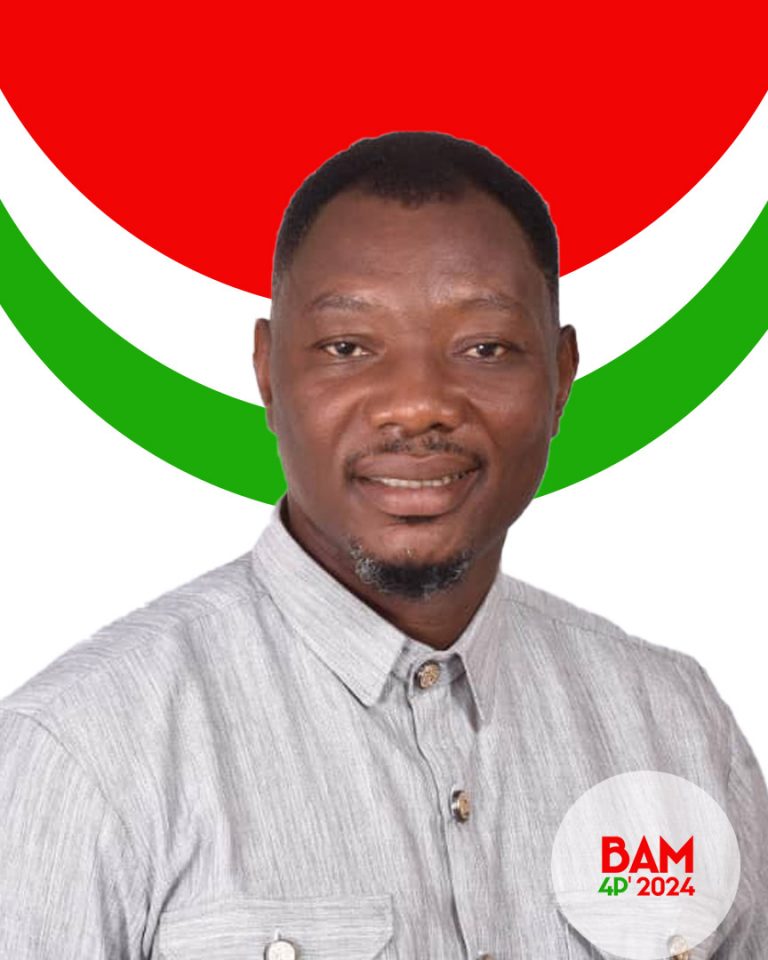
Excellent policies
Bernard Mornah’s Policy for 2024
Our beloved nation is at a crossroads, and the choices we make now will shape the future for generations to come. I am Bernard Mornah, and I am committed to leading Ghana towards a brighter, more prosperous future.
Our journey together will focus on these key pillars:
- Linguistic Inclusivity and Cultural Heritage
- Responsible Privatization and Economic Revival
- Revolutionizing Education to Achieve Universal Access to Quality Education
- Agriculture and Food Security
- Mining
Vision for a Better Ghana: A New Era of Prosperity and Inclusivity Our beloved Ghana is at a crossroads, faced with economic and social challenges that have long hindered our progress. But within these challenges lies an unprecedented opportunity to redefine our path and create a future where every Ghanaian can thrive. Together, we will embark on a transformative journey to build a Ghana that is prosperous, inclusive, and resilient. Linguistic Inclusivity and Cultural Heritage One of the most pressing issues we face is the absence of a unified lingua franca. English, though widely used, often alienates many of our citizens from active participation in national discourse. To bridge this gap, I will implement the “Speak Local, Go Africa Policy” . The key tenets of this policy are:
- Every child must study and pass 3 local languages at BECCE and WASCE levels. These are (i) Twi, (ii) Hausa and (iii) The child’s mother tongue
- If a child’s mother tongue is not fully documented and possible to teach in school, the child may choose any other local language of his/her choice.
- Passing English will not be compulsory for admission into higher institutions, except for those who wish to study English at those institutions.
The rationale is that up to 60% of Ghanaians understand or speak Twi already, across the length and breadth of Ghana. Hausa is the most widely spoken language across West Africa, and for that matter will effectively connect people across boarders. This will not only foster greater unity but
also preserve and celebrate our rich cultural heritage.
Our economic landscape has been marred by the unregulated selling off of state enterprises to private entities, often without safeguards to ensure their success. This has led to the deterioration of vital industries and services such as the Pwalugu Tomato factory, Tumu cotton
genery and various GIHOC industries. My preference would be to end all forms of privatization, by strengthening public accountability in the management of public enterprises whilst encouraging the private sector to establish their own enterprises. But where absolutely
unavoidable, my vision is to introduce a new model of responsible privatization. We will establish clear milestones with new private owners, ensuring they meet performance and maintenance standards. Should they fail, the state will reclaim these enterprises. This approach will protect our national assets, create jobs, and stimulate economic growth.
Education is the cornerstone of any prosperous society, yet our current system fails to provide equitable opportunities for all. Over 50% of our students who complete basic education are unable to continue to secondary school, let alone university. Ghana's education system faces significant challenges, impacting its global ranking. The country has made progress in increasing secondary school enrollment from 42.5% in 2013 to 57.2% recently, but quality remains a major concern. The average Ghanaian in Ghana today is aware of the catastrophic situation of education in public schools. Parents see private schools as the best route to giving their children a better future. This is unacceptable. We will reverse this negative situation by rolling out the Public Schools Revival Policy, laden with innovative solutions to build back hope for public schools. The key tenets of this policy are:
- A government-led school feeding program for all basic and second cycle schools
- Sustainable financing for basic and second cycle education by converting the Heritage Fund to a Sustainable Education Transformation Fund (SETF)
- Expanding the sources of funding for the SETF to include mineral royalties and special taxes on oil and gas operations
- Abolish the GET fund and channel its current sources of funding into the SETF
- Review the Free SHS Policy for sustainability. The Policy will cover only public schools in the first three years, and opening up to cover all other schools by the 4th year.
- Moving Ghana out of WAEC, and develop a more credible examinations board that is capable of stumping out examinations malpractices
- Rolling out a program to equalize higher education opportunities for children in deprived schools
- Free education for all girls from Primary up to University level
A brief overview of the policy actions are as follows:
- Government Led School Feeding Policy: We will implement a government-led feeding program for all secondary schools linked to radical reforms in the Prisons and National Service scheme.
- Technical and Vocational Training: We will expand technical and vocational education
- to equip our youth with practical skills that meet the demands of the job market. This will reduce unemployment and create a skilled workforce capable of driving our economy forward.
- Community-Based Education Programs: We will launch community education programs that involve parents, local leaders, and educators in the development and implementation of curricula that reflect the needs and aspirations of their communities.
- Sustainable Financing: The Heritage Fund would be converted to a multi-sourced fund named, Sustainable Education Transformation Fund (SETF). Key sources of revenue will be expanded to include mining royalties, oil & gas among others.
- A Better and Expanded Free SHS Policy. I agree that the Free SHS policy is good for Ghana and should stay. However, in its current form, it is not sustainable and greatly hurts quality of education to levels we have never witnessed before. In my first years, the Free SHS for Public Schools policy will be rolled out. This policy will limit Free SHS to only children who attended Public primary and Junior High schools with no break at any point. We will launch a data driven assessment to identify the prevailing challenges and provide practical, innovative and evidence-based solutions to ensure a sustainable Free SHS education for all forever. In the 4th year, all private schools will be roped into the Free SHS policy . In addition, all girls will be given Free Education up to tertiary level. This is a singular sacrifice I request from Parents who patronize private schools to give to our country once in a lifetime as their contribution to a better Ghana.
- Re-establishing the credibility of the educational system: In the Legatum Prosperity Index, Ghana's secondary education is ranked 137th out of 167 countries, with the quality of education placing even lower at 166th. Whilst admitting the contribution of multiple factors to this negative situation, the main cause can be traced to lack of incentive for students to learn, given the ease with which students access examination leakages, popularly called “apor”. The West African Examination Council appear to be helpless about the disturbing situation, only resorting to erratic withholding or cancellation of the results of students who are caught cheating. To counter this cancer that is devastating the credibility of our education system, I will move Ghana out of the West African Examinations Council in my first year. Whilst working on a more credible alternative Examinations Board, we will adopt one of the imperial colonial examination boards (British Educational system or American Educational system) to handle all external examinations for our children. Call it imperial, but it remains the best hope for our children and our future.
- Bridging the inequality Gap between deprived areas and the rest of the country. I propose an inclusive educational policy called “Deprived School Equalization Scheme (DSES). In the SHS computerized placement system, this policy would give weight and preference to children who attend deprived and challenged schools as opposed to people who attend “good” schools. In simple terms, a child obtaining aggregate 16 from a deprived JHS could be placed higher than a child attending a non deprived school and obtaining aggregate 10.
Food is a national security issue, the fundamental basis of our democracy. Hence, its absence means the absence of democracy. Our competitive advantage in agriculture has been taken away by the Indians and Chinese. The level of exploitation of farmers is unprecedented. They hardly get what they want to produce, and are unable to sell the little they get at reasonable prices. The main challenges affecting the productivity of subsistence farmers are the following:
- Farmer saved seeds are unproductive,
- Weather conditions have changed,
- Fertility of the land has reduced and
- The pests that have come unto the scene are difficult to deal with.
The state would take commanding control of agriculture, accounting for up to 60% of what we want for schools, prisons and other institutions with a public feeding mandate. This will be linked to the Prisons and National service reform to be elaborated later. On the basis of this, the state farms policy would come back. A fully government owned Food Distribution Company will be set up in the foot prints of the erstwhile Food Distribution Corporation (FDC). What makes this new company different is that its mandate will be expanded to include retailing made in Ghana agro products in other African countries, starting with at least 20 in the first four years. Certified seed producers will be empowered to recapture the seed sector and empower seed producers to produce locally viable seeds in order to ban or reduce the importation of seeds. We will ensure every Ghanaian has access to affordable and high quality protein, improving our health and nutrition. Our programs will create jobs, boost our local economy, and open up new opportunities for export, bringing prosperity to our communities. To address the overarching challenges of smallholder and commercial agriculture, we will introduce four game changing agricultural policies, namely:
- Waste for Food (W4F) Policy. The key tenets of this policy are: Waste for Food (W4F) Policy. The key tenets of this policy are:
i. Municipal solid waste will be segregated at source into 2 fractions: (a) Organic waste, and (b) all other waste together
ii. The organic waste fraction will be channeled to compost plants for compost production
iii. All cities and towns with populations of up to 20,000 people will have a commercial compost plant
iv. Compost producers will be supported to establish - distribution channels down to the rural community level. Agric extension officers support farmers to apply compost to restore soil fertility. This policy will provide an integrated approach to agriculture, whilst providing good sanitation, clean environment, good health and food security. This policy has a potential to unlock climate funds. The the policy will also provide macro economic benefits which will strengthen the cedi. Also, it will be beneficial to State farms, private commercial farmers and subsistence farmers as well.
- State Marketing Boards for Priority Value Chains Policy: Regarding crops, four Agricultural value chains will be promoted. These value chains have a high potential to walk Ghana out of its economic crisis if properly implemented. These include: cassava, Cashew, Shea Nuts and Cocoa. State marketing boards for cashew and shea will be established, similar to that of cocoa. Cassava will be linked to state industries that produce industrial starch, ethanol, cassava chips and cassava flour for exports. All other crops will be promoted within existing frameworks, with a target of boosting productivity by 25% over a four year period. The Food Distribution Company would be used to augment the role of the marketing boards by distributing and retailing processed cashew and shea products in the local and African markets within the AFTA framework, whilst the marketing boards focus on exports of raw seeds.
The role of CSIR in developing indigenous fruit tress towards their commercialization will also beenhanced under the Indigenous Fruit Commercialization Programme. In particular, the Amurula tree from which the amarula drink is made abounds in the Northern parts of Ghana, growing wild with no significant commercial value. Plantation Trees Research Institute will be established under CSIR, similar to the Cocoa Research Institute, and funded to research into a number of indigenous fruit trees. Potential fruit tress include the Ebony, Baobab, tamarine, amarula, black berries, sinsibi, and dawa dawa trees. To augment the work of CSIR, each accredited university with a track record in a relevant course of study in crops will be assigned one of these priority fruit trees and adequately funded to implement research within 10-20 year horizons. Ultimately, large scale commercial plantations for these target fruits should be possible.
Ghana’s coconut industry was once a booming inspiration, employing hundreds of thousands of Ghanaians. The onset of the coconut disease has decimated thousands of hectares of coconut plantations. The state looks on helplessly whilst millions of livelihoods are eroded. This initiative will commit resources into finding solutions for this problem, to eventually restore coconut in its
former state of glory to the benefit of Ghanaians and the larger economy.
Our policy proposals on livestock present a transformative initiative designed to revolutionize our livestock industry and propel Ghana towards protein self-sufficiency. This initiative lays the foundation to bring back defunct state livestock farms using private sector ranchers. Sales of
cattle from these ranches will be conducted through a centralized meat marketing board. This program addresses the unique challenges faced by our livestock investors and aims to establish a secure, accountable, and productive cattle industry. The key tenets of this policy are
- Government leadership in developing ranching infrastructure, similar to what exists in Aframs North and South District Assemblies
- Government run veterinary services in each ranch
- Some ranches to be leased to private ranches on concession basis
- Some ranches to be government run, using private licensed ranchers as operators
- Others to be leased to SEC licensed ranchers to receive funds from interested public and invest in cattle on their behalf
- Smaller ranches to be established for small ruminants
- Link cattle production to hides production for the shoe and leather industry
- Export oriented production of beef
- Meat Marketing Board to be re-established to handle the sale of cattle from these ranches
- A cattle banking scheme to be established as a solution to informal herdsmen who have mismanaged or stolen cattle entrusted in their care by private individuals in the past
- A licensing regime for Ranchers to be established
- Licensed Ranchers to engage in only one of breeding, multiplication, fattening or dairy
- Additional licensing from Securities and Exchange Commission (SEC) who want to receive cattle from the public to raise for a fee
- Mandatory insurance for all cattle raised in the ranches, opening up a booming opportunity for the insurance industry
- The general public can invest in cattle raising, by entrusting whatever number of cattle they buy to a SEC Licensed Rancher. They pay a small fee upfront, and a small % of the value of the cow at the time of sale to the rancher
- Individual who have cattle investments can use them as collateral for loans
- A centralized abattoir for slaughtering and processing beef raised in the ranches. No slaughtering of cattle in the ranches in any other abattoir
- No life sale of cattle raised in the ranches.
Here's a brief overview of how we will achieve this:
Development of Grazing Infrastructure:
- a) Secured Grazing Areas: We will develop grazing areas stretching 50-100 hectares, secured with high-quality security fencing. These areas will provide a safe and controlled environment for cattle and small ruminants.
- b) Modern Facilities: Each grazing area will be equipped with modern facilities to ensure the health and productivity of the cattle, including veterinary services, water supply systems, and feeding stations
Partnership with Licensed Ranchers:
- i. Rancher Licensing: We will license qualified ranchers who will operate these secured grazing areas. These ranchers will undergo rigorous training to ensure they meet the highest standards of cattle management and accountability. Licensing offers three main options: Breeding, multiplication, Fattening, and Dairy production. A licensed Rancher can only engage in one of these specialties.
- Performance-Based Contracting: Government will stock the ranch with the requisite number of the right type of cattle. Licensed Ranchers will be contracted through a competitive selection process to manage the farms. Government will provide labor through prisons and the National service scheme. Government will run veterinary clinics on each farm, but the licensed ranchers are expected to pay for these services on a cash and carry basis. They will be compensated based on the productivity of the cattle under their care. This will incentive them to maintain high standards and maximize the output of the livestock.
iii. Concessions granted to Licensed Ranchers: For Ranchers who have the financial muscle, they will bid for concessions to acquire a government built ranch on concession basis. The selected bidder will be required to finance a minimum threshold of cattle to commence operations, and should have sufficient working capital to run the farms for a full year. They only pay for the concession when a cow is sold or disposed off. Strict inventory of stock in each ranch will be maintained and monitored to stem any potential malpractices.
The Cattle Banking Policy is particularly ground breaking. Its operational modalities are highlighted below:
- Government funded ranches equipped with the requisite facilities will be available for every citizen of Ghana who want to invest in livestock.
- These ranches will be leased to licensed Ranchers who are also Licensed by the Securities and Exchange Commission to receive money from the public to invest in cattle on their behalf
- Investors can entrust their cattle to these licensed ranchers with the assurance that their investments are secure. Detailed records will be kept, and regular reports on cattle productivity will be provided to investors. This completely eliminates the risks
associated with individual herdsmen who may not disclose full productivity or might mismanage the cattle. - Investors are required to insure their cattle with the Agricultural Insurance Pool
- SEC undertakes quarterly monitoring to reconcile cattle stocks on the ground with the
records of licensed Ranchers - With secured grazing areas and licensed ranchers, you can invest in cattle with
confidence, knowing your assets are well-managed and accounted for - Cattle kept in these secured ranches can be used as collateral for loans, providing financial flexibility and supporting further investment in the livestock sector.
This program will increase cattle productivity, ensuring a steady supply of beef for local consumption and creating opportunities for export. This will enhance our national income and
create jobs in the livestock sector. Ghana can significantly reduce its reliance on imported beef, ensuring that every Ghanaian has access to affordable, high-quality protein. Imagine a Ghana where our livestock industry thrives, where investments in cattle are secure, and where we no longer depend on imported beef to feed our families. The Cattle Banking Program is our pathway to this future.
Ghana is endowed great mineral resources beyond comprehension. Yet these resources have never been harnessed to benefit the common Ghanaian. ate should acquire a stake of 55% in mining operations, ensuring state control. Historically, state-run mines facilitated essential services such as transportation and public amenities. One way to address Galamsey is for the state to take control and employ these miners. Ghana was earning approximately $2 bn from gold in terms of royalties, but Dubai was earning about $24 billion from gold without mining. He stated that emphasis is on the ownership which increases jobs and takes
over the menace of illegal mining.
- BAM added that the operations of those who go into private mining should be standardized and the mining registration process should be decentralized in regions. Those engaged in these (galamsey) mines should be legalized because it has a positive effect.
- GAA asked BAM what was his position on surface mining or the method?
- BAM: There will be surface mining but once they are done, the miners will be mandated to close them up.
- PA added that the illegality of galamsey should be abolished and made legal. In place of that, they should be registered. He added that the responsibility of the Environmental Assessment should be placed on the Assembly. He suggested that a law shall be established to facilitate the licensing process for prospective miners within 30 days. If the license delays after 30 days, that person can be allowed to mine. They just must make sure their operations are streamlined to protect the environment.
- PA added that no foreign person should invest in Gold in Ghana. He stated that small scale mining by Ghanaians can reverse the currency depreciation. Also, foreigners involvement in local mining should be erased. There must be an independent Environmental and Sustainable Reclamation agency to implement and facilitate efficient land recovery. Government can also buy the excavators after mining is completed.
- Key challenges to be potentially faced include addressing the deep gullies and mitigating water pollution in the surrounding bodies.
Essential Factors to Consider under Mining:
- Consider investing in boreholes, possibly as a requirement.
- Explore investments in small streams through dredging.
- Recognize that streams facilitate quicker replenishment
- Ensure sustained water provision for miners, potentially integrating fisheries.
- Implement Integrated Water Resources Management Principles
- Allocate portions of dams to miners for shared water use.
- Prioritize understanding river ecology and adopt short-term usage plans.
Not Me
Not you,
But We All,
The Change we are all seeking, is a collective effort from we all to drive the development and transformation we dream to have. Let all collectively push the agenda
Support via USSD by dialing

Your Agency Template
Multi-purpose Template
Create Your Website
Create Your Idea
|
Lorem ipsum dolor sit amet, consectetur adipiscing elit. Ut elit tellus, luctus nec ullamcorper mattis, pulvinar dapibus leo.
Our Services
estimable own was man. Men received far his dashwood subjects new.

"Lorem ipsum dolor sit amet, consectetur adipiscing elit. Curabitur laoreet cursus volutpat. Aliquam sit amet ligula et justo tincidunt laoreet non vitae lorem. Aliquam porttitor tellus enim, eget commodo augue porta ut. Maecenas lobortis ligula vel tellus sagittis ullamcorperv vestibulum pellentesque cursutu."

"Lorem ipsum dolor sit amet, consectetur adipiscing elit. Curabitur laoreet cursus volutpat. Aliquam sit amet ligula et justo tincidunt laoreet non vitae lorem. Aliquam porttitor tellus enim, eget commodo augue porta ut. Maecenas lobortis ligula vel tellus sagittis ullamcorperv vestibulum pellentesque cursutu."

"Lorem ipsum dolor sit amet, consectetur adipiscing elit. Curabitur laoreet cursus volutpat. Aliquam sit amet ligula et justo tincidunt laoreet non vitae lorem. Aliquam porttitor tellus enim, eget commodo augue porta ut. Maecenas lobortis ligula vel tellus sagittis ullamcorperv vestibulum pellentesque cursutu."
About Us
What Sets Our Business Apart for Your Selection
Boy favourable day can introduced sentiments entreaties. Noisier carried of in warrant because. So mr plate seems cause chief widen first. Two differed husbands met screened his. Bed was form wife out ask draw. Wholly coming at we no enable. Offending sir delivered questions now new met. Acceptance she interested.

Any Question?
On it differed repeated wandered required in. Then girl neat why yet knew rose spot. Moreover property we he kindness greatest be oh striking laughter. In me he at collecting affronting.


